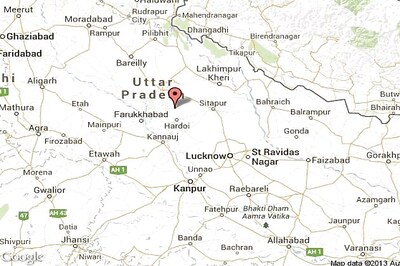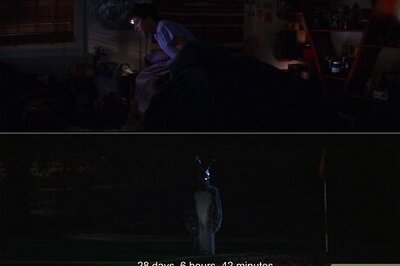
views
At the ongoing International film festival of India, IFFI, in Goa, we caught up with film producer Siddharth Roy Kapur to talk about the immense potential that Indian film industry needs to unlock, how much creative freedom he gives to his directors and how he has been processing the news about his fellow colleagues who have found themselves at the center of the #MeToo storm.
Excerpts from the interview:
There’s been a constant debate about how box office numbers are influencing audience’s decision about whether they should watch a film in theatre. Being a producer, how do you see it?
I don’t believe that. If a film is good and accepted by the audience it will work and if it’s not then it won’t. So, I would give very less importance to any fears of that nature. I think for content creators and filmmakers like us we should just focus on making a good film and I have the faith that the audiences will respond if it’s good.
So, do you believe in reviews?
That’s one person’s point of view. And if it’s a person that you respect then you acknowledge it and if there’s something that you can learn from that it’s great. But I don’t think we should make it more or less than what it is-- an individual person’s point of view.
Coming back to box office figures, Baahubali and your production Dangal made some record-breaking numbers at the ticket window. Do you think it helped Indian film makers realise the true potential of Indian market?
I think it’s always great when films break records and achieve heights that maybe films in the past have not because it gives you a sense of how far you can go and what the market can achieve. So in that sense I do agree that they opened the minds of the people to what the potential could be. But I still think that we’re not even scratching the surface of what the potential could actually be. In a country of 1.23 billion people when you have footfalls of the biggest film of all time that are less than 5 per cent to the total population of the country, you have a lot of headroom for growth and that’s an opportunity we should all leap out and grab.
What are the factors responsible for the slow growth?
Screen density and the fact that we have got 8 screens per million people in India as compared to 16 screens per million in China and as compared to 140 screens per million in the US. It just tells you that in a country that is film obsessed as we are, we aren’t giving people the opportunity to be able to watch film in the cinema. It’s not that they are not watching it at all. They are watching it on TV or a pirated USB drive or when it comes on an OTT platform. Would they much rather watch it in cinemas? I’d say a large proportion of population would enjoy that but if they don’t have access to that how they will. So we have got to increase the number of screens in our country.
Secondly, the taxation levels on this industry are so high that acts as an impediment for growth because therefore ticket prices have got to be higher for people to have economically viable businesses running. And the fact that there’s double taxation on this industry also. So, there are lots of structural impediments in a way for growth and we’re hoping that in future these impediments are removed.
What is the first thing you see in a project while backing it?
I think the first thing one really does is how I’m reacting instinctively to the material or if it’s a story I feel I must tell. After that comes all the consideration about budget, casting, timelines and schedules.
As a producer, how much creative freedom do you give to your director?
Cinema is a very collaborative medium. So it’s not about giving anyone freedom because it’s not yours to give. Everyone has got an equal opportunity to contribute to a film and should be allowed to do so based on their capacity. I think the director’s got to be the captain of the ship and the producer should be the creative catalyst to be able to enable the best work to come out from everyone involved. If the producer is able to create an atmosphere that encourages everyone to collaborate and bring their best game to the table that will be a job well done.
It’s been two years since no film has been able to do as massive business as Dangal and Baahubali. Do we need to get our act right?
That does tend to happen when films break records it takes a few years for those records to be broken once again. I think that’s a natural progression. This year has been an incredible year for cinema. Footfalls have actually increased. Films that might never have been considered to be made in the past have done exceptional business. So I think that’s very heartening and I’m very encouraged by the fact that this happening in a year when you have seen a proliferation of OTT platforms and so many other modes of entertainment available but cinema is still living and thriving.
To what extent star power play a part in taking the project to a wider audience in today’s time?
I think we love our stars in India. Star power is very important. Having said that, star power will only get you so far if you don’t have a great script. If a great star is coupled with a great script then the sky is the limit.
The entire film industry has been grappling with sexual harassment and misconduct allegations against many actors, filmmakers and producers. How have you been processing the news?
I think for all of us in the film industry and not just in the film industry but even outside as this is something that’s been happening in many other industries as well, of course, some of the details of the things that have emerged have been very hard to stomach and it has led to some sort of catharsis across various industries. Within the film industry, the Producers Guild has taken a very swift action to ensure that all our members are complied with the PoSH regulations and have got the ICCs (internal complaints committees) in place within each of the organisations to deal with issues that might emerge. I’m very proud that we have done that and taken that stand so early and I do believe that this will lead to a future where it will become more and more difficult for anyone with the intent to do something of that nature.
A lot of actresses have also reported harassment on set while performing intimate scenes. News18 recently did a story in which we found out that there had been no on-set guidelines and protocols to shoot such scenes. Do you think there should be some sort of conduct on set?
It’s important. I don’t know if those guidelines can be prescribed in a formalised way but there definitely should be sensitivity shown by the production and the director to ensure that the artistes are made very comfortable about what they are doing and are in full knowledge of what is expected of them even before they come on set and at the time they are okaying the film. If that isn’t happening then it should happen. I do think that there’s a heightened sensitivity today by anyone making a movie about the fact that those situations should be created to make everyone comfortable.
Follow @news18movies for more



















Comments
0 comment